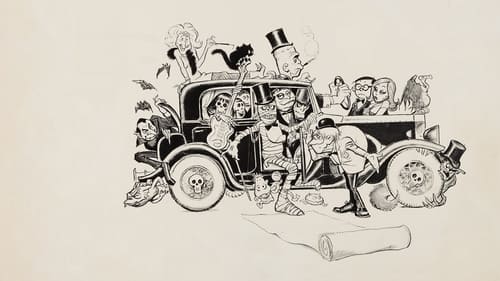Tadahito Mochinaga
출생 : 1919-03-03,
사망 : 1999-04-01
약력
Tadahito "Tad" Mochinaga was a pioneer Japanese stop-motion animator. Having done many stop motion films/shorts in Japan, he is best known as the animator for Rankin/Bass' "Animagic" productions at his MOM Studio in Tokyo throughout the 1960s. He did this work in association with American director Arthur Rankin, Jr. who wrote and designed the productions before sending them to Japan for animation.
In 1945, Mochinaga traveled to Xinjing in the Japanese puppet state of Manchukuo set up in occupied China, to work at the Manchukuo Film Association. He stayed in China after the war and from 1950, he spent three years in Shanghai working on such films as Thank You, Kitty. He is perhaps the only major artist of the era to have worked in both Chinese and Japanese animation industries.

Cinematography
When Dr Frankenstein decides to retire from the monster-making business, he calls an international roster of monsters to a creepy convention to elect his successor. Everyone is there including Dracula, The Werewolf, The Creature, Dr Jekyll & Mr Hyde and many more. But Frankenstein's title is not all that is at stake. The famous doctor has also discovered the secret of total destruction that must not fall into the wrong hands!

Director
A short puppet animation movie by Tadahito Mochinaga.

Director
A short puppet animation movie by Tadahito Mochinaga.

Director
A short movie based on the children's story by Momoko Ishii.

Director
A short puppet animation movie by Tadahito Mochinaga.

Animation
In 1955 Tadahito Mochinaga was asked to create commercials for Asahi beer, which he created using stop-motion, followed by the 1956 short film "Beer Mukashi Mukashi" (Beer, those were the days...), created specifically for theatres. With the help of Kikachiro Kawamoto and Noburo Ofuji, this is the first animated short/commercial in stop-motion made for Japanese cinemas!

Director
In 1955 Tadahito Mochinaga was asked to create commercials for Asahi beer, which he created using stop-motion, followed by the 1956 short film "Beer Mukashi Mukashi" (Beer, those were the days...), created specifically for theatres. With the help of Kikachiro Kawamoto and Noburo Ofuji, this is the first animated short/commercial in stop-motion made for Japanese cinemas!

Director
A short puppet animation movie by Tadahito Mochinaga.

Director
A short puppet animation movie by Tadahito Mochinaga.

Director
Kitten Miaomiao and Mimi are a pair of siblings with opposite personalities, one is hardworking and obedient, and the other is playful and lazy. When the sun came out, mother wanted them to get up, and Miaomiao got up, but Mimi had to stay in bed.

Director
On a highland with beautiful scenery, there lived some small animals. They had a good friend named Xiao Tie Zhu.

Director
The industrious and brave little cat is a good friend of everyone. It is hard work for everyone to watch the nursing home day and night. One day, two mice sneaked into a family under the broad daylight, not only spoiled the grain in the barn, but also messed up the room. At the end of the day, they stole the big eggs from the hen. While dragging the eggs and looking around in a hurry, the scene of the sneaky was seen by the big cat who was playing basketball, and the hen was able to keep her egg baby.

Director
A satirical animation short on Chiang Kai-shek made by communist party.

Animation
A satirical puppet animation short on Chiang Kai-shek made by the communist party.

Cinematography
A satirical puppet animation short on Chiang Kai-shek made by the communist party.

Director of Photography
Fuku-chan was one of the most popular newspaper comic strip boy-characters in Japan at the time. The film portrays a submarine attack on an enemy cargo ship. Though this, too, was to boost patriotism, Japanese children particularly enjoyed the scenes in which the kitchen crew cooked in the submarine kitchen. Released in November of the same year, the food shortage was quite serious in Japan, and the abundant food supply in the submarine kitchen -- vegetables, fruit, fish, rice, and more which were already luxury items in Japan at the time -- was prepared into various dishes along with a merry, rhythmic song.

